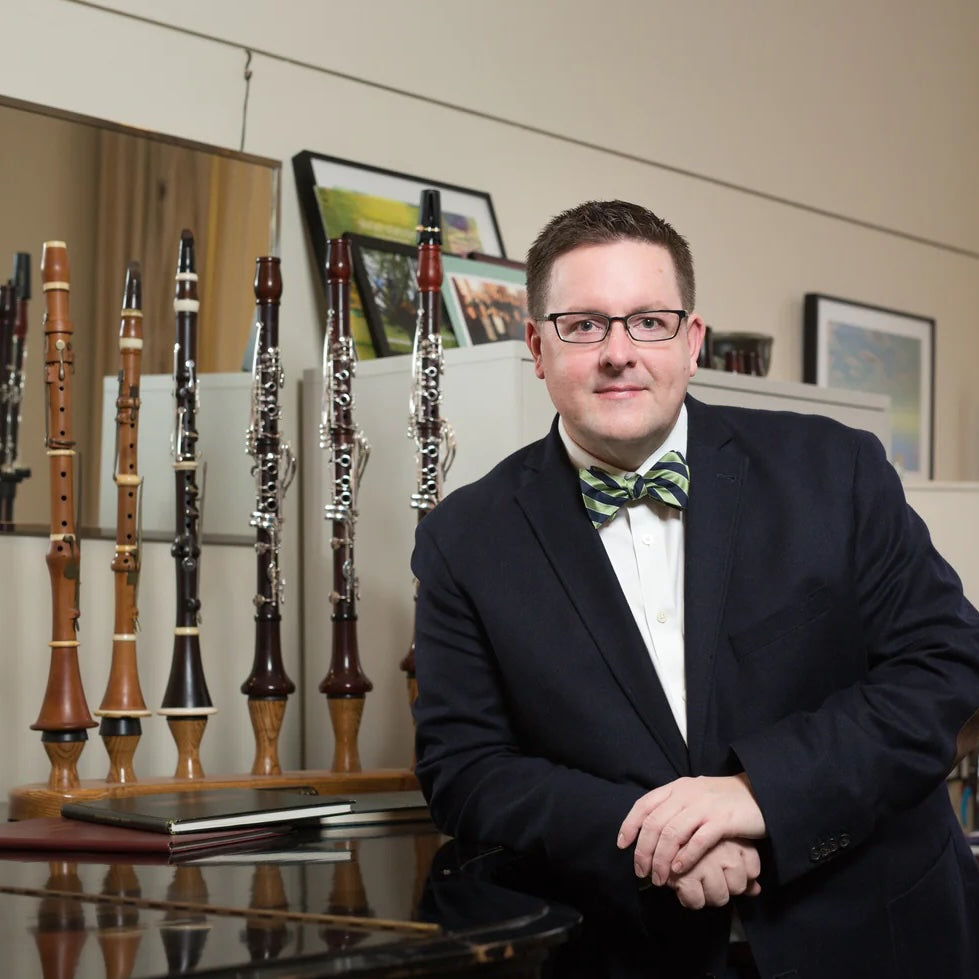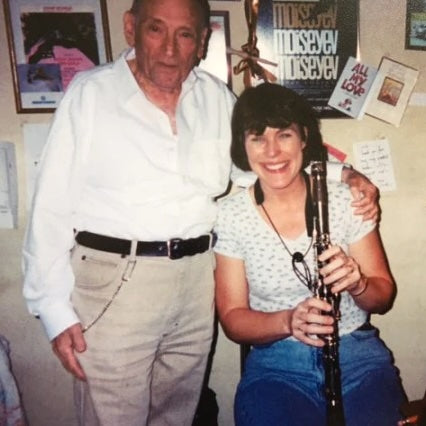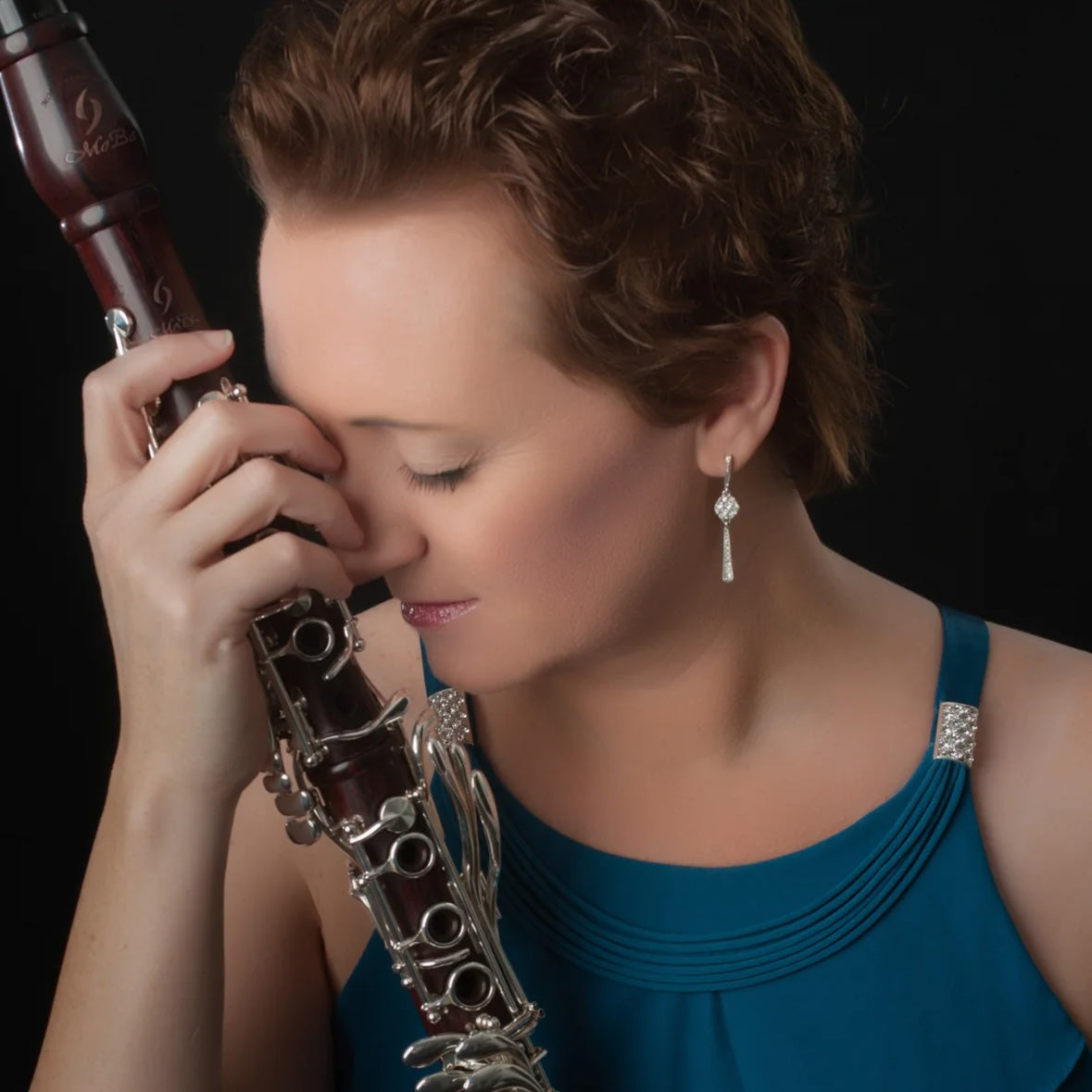Richard Hawkins on the joy of teaching, and how coffee roasting and pottery are like his passion for the clarinet
Richard Hawkins has converted his disused dining room into an espresso bar.
“Roasting coffee is very much like the making of the clarinet,” he told me, “because it’s so reliant on where it comes from in the world. If you get a certain kind of coffee bean from South and Central America, Indonesia, or Africa — where it’s grown has to be at a certain elevation and humidity, which is very much like the wood of the clarinet.” You get a plethora of results and flavours from coffee, and sounds from the clarinet.
Hawkins is the Fenelon B. Rice Professor of Clarinet at Oberlin Conservatory of Music, where he has taught for the last fifteen years. Raised in Spring, Texas, outside of Houston, in a family of country and rock musicians — his father played steel guitar and his brothers were both drummers — Hawkins came to the clarinet through a bit of rebellion. “I decided that I couldn’t take country music anymore, and I went into the band program and discovered that classical music was something that really caught my interest.”
And his interest was broad, which is what led him to focus on teaching as a profession. “To me, academia is a way to be able to do everything. I get to play with orchestras, make clarinet mouthpieces, perform new solo works, play with lots of amazing chamber musicians, and most importantly, I get to teach amazing students. I just love it, and I love seeing my students do well. For me, [teaching] was always the right choice.”
This broad interest in all aspects of clarinet doesn’t indicate a struggle to focus. On the contrary, Hawkins, who makes espresso using state-of-the-art equipment in his home, makes the immediate impression of someone who commits fully, and with laser focus, to study the entirety of the subject he commits himself to — from the minute details to the elaborate tapestry, and everything between. Perhaps his success as a teacher and performer is related to this ability to understand, and then convey, this breadth of knowledge to his students.
It’s a fine balance between teaching musical ideas and technical facility, and teaching life skills.
Hawkins started his teaching career at the Interlochen Arts Academy, where he taught such iconic clarinetists as Anthony McGill, Michael Wayne, and Ben Lulich. After almost ten years at Interlochen, he joined the faculty at Oberlin in 2001 and has worked with many exceptional performance and double-degree students, including talents like Boris Allakhverdyan.
His approach to teaching involves helping his students to establish a strong foundation in clarinet fundamentals, with a focus on guiding them to eventually just let go and have fun when they play. “It’s a fine balance between teaching musical ideas and technical facility, and life skills.”
He figures that about 90 percent of what he does is “teach students how to be comfortable with themselves, good people, and good to others. There are so many things that are involved with that, that’s outside of fingering the instrument or the mechanics. At the same time, the mechanics are hugely important, because [clarinetists] can only get so far if they don’t have certain skills. Overall, I tend to prepare my students for the musical world rather than the clarinet world.”
Hawkins wants his students to have fun, and he has a deep appreciation for how a solid grasp of mechanics enables them to achieve that. Along the way, his students build confidence and knowledge of what they want to express through music.
He wants his students to remain in touch with why they became musicians in the first place, which was to enjoy themselves and, as he explains, “not think about all of the fundamentals and all of the little nitpicky things that one has to do. It’s really hard for students to do that. It’s hard for even adults to do that, and professionals. It really has become a goal of mine to be able to get my students to play casually but with incredible accuracy and intent.”
It’s that tension between the intense practice and persistence required to master the fundamentals and the ability to relax into those skills in order to enjoy the act of creating that seems to pervade every medium Hawkins creates in, whether it’s music or coffee or one of his more recent pursuits: pottery. Hawkins, it seems, is as comfortable as a student as he is as a teacher.
“A few summers ago I took a friend up on an offer of taking a Raku pottery class. I had never done pottery in my life, and I thought it was kind of interesting. What I’m thinking of as I’m learning the trade, from the basics, is to really appreciate and relate it to music. It was incredible to me how much of it was related. Being able to really craft something in a careful way from the very beginning and knowing all the steps to get the pottery in the fire, in the shapes that you want and the colours that you want and all of those types of things, are very much related to music. Again, it’s the fundamentals that you’re learning, like those of rhythm and articulation on the clarinet and styles of different types of composers. Knowing all of that in relationship to Raku was really astonishing to me, because it was so similar. Even though I’ve got my hands in clay and I’m doing all these things, the process is very, very similar.”
This perspective seems closer to a worldview than an approach specific to teaching or learning. The comparisons Hawkins makes between creating pottery and creating music — and coffee — could extend to the experience of anything even remotely creative. The similarities he points out exist not only in the acts of creation, but also in his relationship with what he creates.
“In the end, what you really decide, when you get to the final product of a piece of pottery, is you have to let it be. You can’t start adjusting it again. That’s something that’s very much like music. You have to let it go and be able to be very okay with what it is. Then the next time you improve on the next one; and the next time you improve on that one. It’s very similar. How that’s related to my students is that I try to get them to feel that way from the very beginning as well, trying to not be so critical of their work. They have to know that they’re going to make mistakes. They have to know that it’s okay to make mistakes. Each time you learn and you gain memorable experiences.”
Richard Hawkins is the Professor of Clarinet at the renowned Oberlin Conservatory of Music. His former students now hold prestigious positions in orchestras and teaching institutions worldwide. Mr. Hawkins proudly performs on MoBa Cocobolo clarinets by Backun, with a “G” Model Richard Hawkins mouthpiece and Légère Signature reeds.



